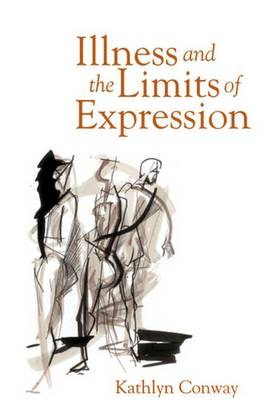Conversations in Medicine and Society
1 total work
This is a thought-provoking exploration of illness, writing, and the limits of language. A sophisticated literary, psychoanalytic, and philosophical treatise on illness and narrative form, "Illness and the Limits of Expression" investigates the failings of standard survivor literature by asking how language can be used to express the catastrophic experience of disease. While battling three cancers herself, Kathlyn Conway became familiar with the "success" narratives of disability and sickness - stories of the woman who still looked beautiful after three successive treatments or the man who ran five miles a day during chemotherapy - all of which emphasized victory born of hope and positive thinking. Believing that such upbeat accounts insufficiently portrayed the intense emotional strain, physical deterioration, and mental terror brought about by illness, Conway began to investigate the far less popular nontriumphalist genres of illness-literature - by authors such as Virginia Woolf, Joan Didion, and Susan Sontag - and she discovered that not only were these works more brutal and honest but they also asked much more of their writers and readers.
Students and scholars of disability studies, psychoanalysis, and literature will benefit from "Illness and the Limits of Expression" as well as anyone who wishes to understand the reality of disease and its effects.
Students and scholars of disability studies, psychoanalysis, and literature will benefit from "Illness and the Limits of Expression" as well as anyone who wishes to understand the reality of disease and its effects.
